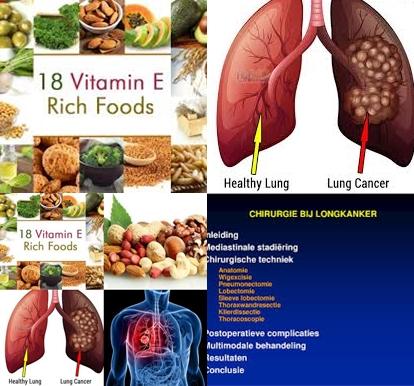
Objectives:
Several epidemiological studies investigating the association between dietary vitamin E intake and the risk of lung cancer have demonstrated inconsistent results. Therefore, this review article (meta-analysis) has been conducted.
Does dietary vitamin E intake reduce lung cancer risk?
Study design:
This review article included 9 cohort studies with 4,164 lung cancer cases among 435,532 participants.
The Egger’s test showed no evidence of publication bias [t = 1.24, p = 0.246].
Results and conclusions:
The investigators found for the highest versus lowest categories of dietary vitamin E intake a reduced risk of 16% for lung cancer [pooled RR = 0.84, 95% CI = 0.76-0.93, I2 = 41.1%].
The investigators found in subgroup analysis by geographic location a significant inverse association of dietary vitamin E intake with lung cancer for the European and American populations [pooled RR = 0.85, 95% CI = 0.75-0.95), but not for the Asian population. Significant means that there is an association with a 95% confidence.
The investigators found every 2 mg/d increase in dietary vitamin E intake statistically decreased the risk of lung cancer by 5% [RR = 0.95, 95% CI = 0.91-0.99, p linearity = 0.0237].
The investigators concluded that higher dietary vitamin E intake; at least 2 mg per day exerts a protective effect against lung cancer.
Original title:
Association of dietary vitamin E intake with risk of lung cancer: a dose-response meta-analysis by Zhu YJ, Bo YC, [...], Qiu CG.
Link:
http://apjcn.nhri.org.tw/server/APJCN/26/2/271.pdf
Additional information of El Mondo:
Find more information/studies on vitamin E and cancer right here.